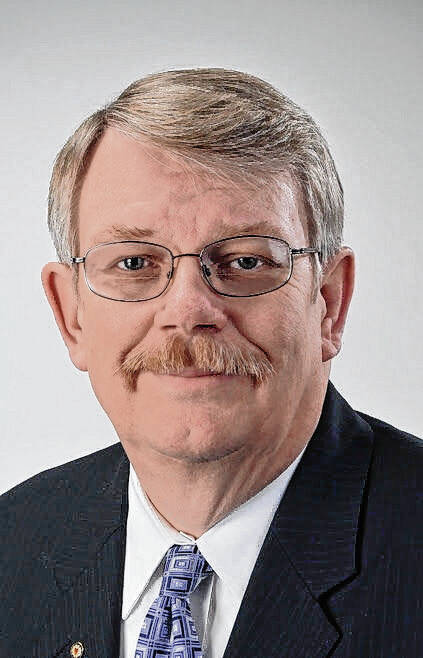I must hang around with the wrong people. Every time I think I have made up my mind on an issue, someone challenges that conclusion. Even worse is when the challenge is to my premises.
I wrote this between sessions at an American Legion conference in Washington D.C. I was about to meet with an enthusiastic young man representing an organization of veterans resolved to break the power of the two-party system in American politics. Our two-party system has become a problem, no argument there, but I have not been able to buy into the solutions offered by this group and others.
So I just admitted I am intellectually lazy. I agree there is a problem but don’t make me think too deeply about the solution.
Except I can’t walk away from this one. How do we replace the two-party leviathan that has a stranglehold on our political process? Parliamentary multi-party systems don’t always work so well either. A party-less system would be no better, making it difficult for voters to accurately anticipate a successful candidate’s legislative actions. There is some value in party discipline, its recent misuse in Congress and the Indiana General Assembly notwithstanding.
Despite my agreement with the problem statement, I just can’t march in the solutions parade. These solutions involve ranked choice voting, instant runoff voting, final five voting and top four voting. I hadn’t heard of most of these before this meeting so I needed time to think them through. For all my faults no one has ever accused me of being a fast thinker.
When in doubt, I grab a book. So I read three books which address this issue and advance solutions.
Andy Horning, erstwhile Libertarian candidate in state elections, has his package of solutions to our electoral and legislative dysfunction. See his book, “Relighting the Torch,” for a comprehensive list of reforms including the usual open ballot voting stuff but also some rather provocative nullification amendments to the Constitution.
Another approach is offered by Jim Belcher in “Cold Civil War: Overcoming Polarization, Discovering Unity, and Healing the Nation.” His point is to move political discourse toward the center and away from the extremes. His analysis of our current malaise is unique and interesting but, again, I’m not sold on his solutions.
Most unusual of the three due to its methodology is “The Politics Industry: How Political Innovation Can Break Partisan Gridlock and Save Our Democracy” by Katherine Gehl and Michael Porter, both connected to the Harvard School of Business. They apply structured business analysis to the political “business” to identify the problem and offer the usual checklist of solutions.
What all these authors have in common is a desire to return to a more civil discourse and a legislative focus on compromise. There is certainly value in that, given the polarization of the last several decades. The problem is that the middle can only hold if there is an honest and open debate on the philosophical underpinnings of the political. In other words, we have to clearly explain why we believe the way we do, as both Franklin Roosevelt and Ronald Reagan accomplished. I like what the latter did while deploring the impact of the former’s actions, but that was one thing I never wanted to discuss with my Depression-era father.
So the salient question remains: Where is the red line between reasonable compromise and dying on the hill of principle? I suggest it is closer to the compromise side than many of my ideological compatriots would want. At the same time it is much closer to the hilltop than my opposites on the other side of the spectrum would accept.
The key to effective and positive compromise is that both sides must give something in order to gain something more valuable. History is replete with examples of failed polities which polarized irretrievably. I fear America is closing in on this point of no return.
Nietzsche, not my favorite philosopher, wrote, “When you stare into the abyss, the abyss stares back at you.” I am trying very, very hard not to stare into our political abyss.
Mark Franke, an adjunct scholar of the Indiana Policy Review and its book reviewer, is formerly an associate vice-chancellor at Indiana University-Purdue University Fort Wayne. Send comments to [email protected].





